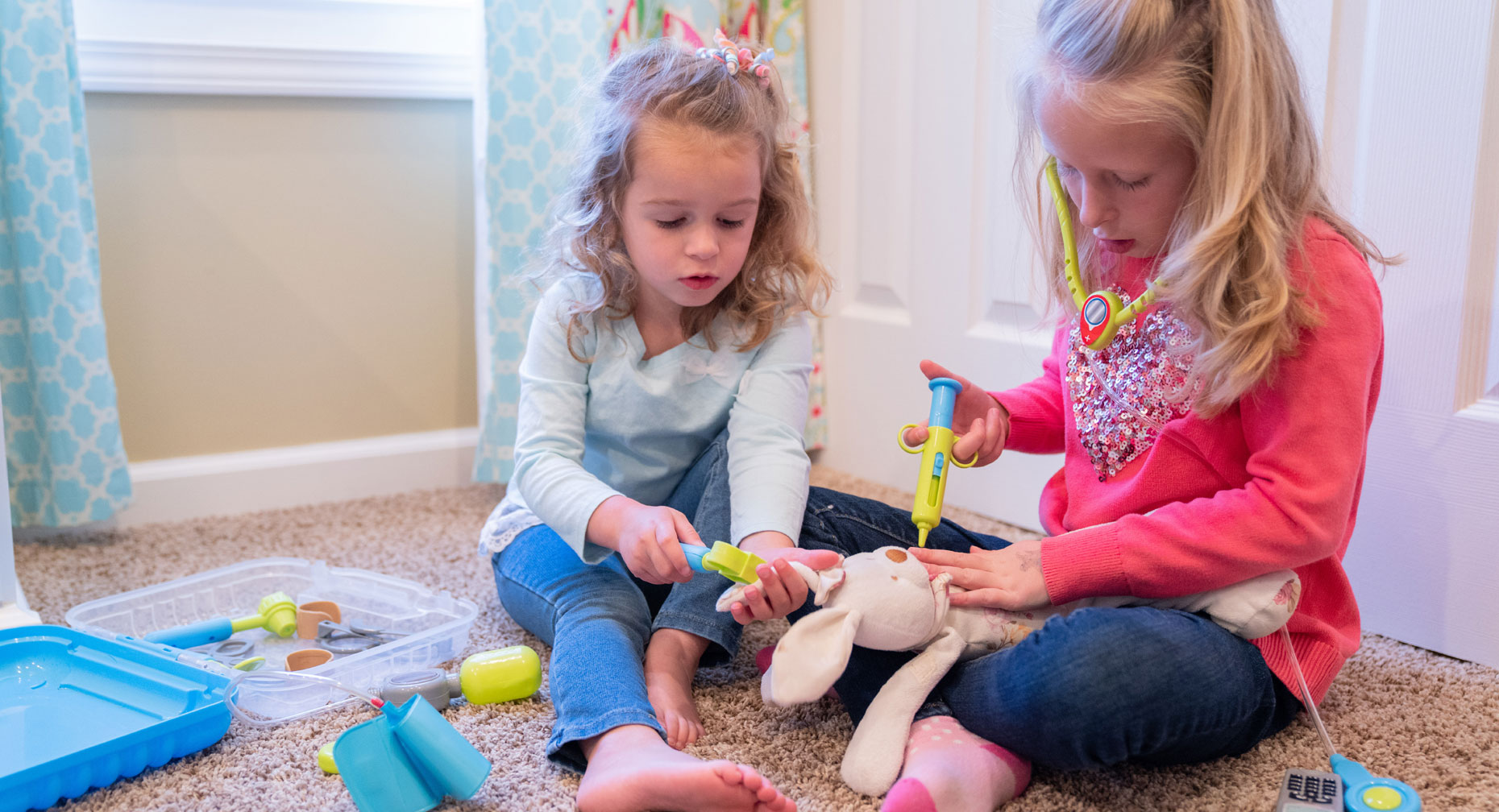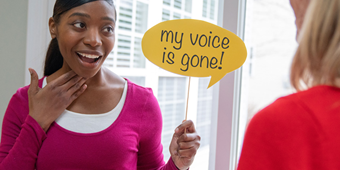Mumps: Vaccine Is Your Best Defense

Find Your Perfect Match
Answer a few questions and we'll provide you with a list of primary care providers that best fit your needs.
You probably know about mumps from the childhood MMR (mumps, measles and rubella) vaccine.
A mumps infection causes a puffy face from swollen salivary glands. The virus is making a comeback with outbreaks in the U.S. and abroad.
That’s why it’s so important to make sure children receive both doses of the MMR vaccine and to check that teens and adults in your household are up to date on their MMR vaccinations.
Complications are rare. When they do occur, they are more common in adults than children.
What Is Mumps?
Mumps is a contagious condition caused by a virus. Early symptoms include:
- Fever
- Headache
- Muscle aches
- Fatigue
- Loss of appetite
A swollen jaw and puffy cheeks usually appear after a few days, when the salivary glands become inflamed and swollen. These glands, located under the ears, can swell on one or both sides of the head.
Mumps is spread through saliva or mucus, from coughing, sneezing, and even talking.
If you experience symptoms of mumps, your doctor will perform a medical exam and talk with you about your medical history. Lab tests on saliva and urine samples may be used to confirm the diagnosis.
Take Steps To Avoid Complications
Mumps usually goes away on its own in about two weeks. Complications are rare. When they do occur, they are more common in adults than children. Signs of possible complications of mumps may include:
- Severe headache
- Stiff neck
- Eye redness
- Drowsiness
- Abdominal pain
- Vomiting
- Testicle pain or lump
If you or a family member experiences any of these additional symptoms, call your doctor right away. Mumps can spread to other parts of the body and can cause:
- Meningitis (inflammation of the membrane that covers the brain and spinal cord)
- Encephalitis (brain inflammation)
- Swelling of the testicles or ovaries
- Inflammation of the breasts
- Inflammation of the pancreas
- Hearing loss
- Miscarriage
Reduce Your Family’s Risk For Mumps
Vaccination is the best way to protect your family from mumps. In the United States, children typically receive two doses of the MMR vaccine by age 6:
- The first dose is given between 12 and 15 months of age
- The second dose is administered between ages 4 and 6
If you will be traveling overseas with an infant between the ages of 6 and 11 months old, the Centers for Disease Control and Prevention (CDC) recommends one dose of the MMR vaccine before departure.
Adults should talk with their doctor to make sure they are properly protected against mumps. New research suggests that the MMR vaccine lasts about 27 years. The American Academy of Family Physicians says it is never too late to get vaccinated.
“I think it’s important for parents and kids to know that if they are exposed to an active outbreak, they can get a booster that will decrease symptoms and complications if they develop the mumps,” says infectious disease specialist Matthew Bauer, DO. If you develop mumps, the booster will decrease the symptoms you experience, he explains.
But Dr. Bauer is not convinced that everyone should rush to get the booster. “Unless your risk is high for being near people who have the mumps, I don’t think a booster is necessary.”
Anyone who has had mumps is immune for life.
Treatments For Mumps Ease Discomfort
Mumps cannot be treated with antibiotics because it is a virus. Treatments are designed to reduce symptoms, prevent complications, and stop the spread of the disease. They include:
- Take medicines to reduce pain (acetaminophen) and swelling (ibuprofen)
- Use ice packs and/or heat packs to reduce pain and swelling of the cheeks and jaw
- Drink plenty of fluids to avoid dehydration
- Get lots of bed rest
- Eat soft foods
- Gargle with warm salt water
- Eat popsicles to soothe the throat
To avoid spreading the mumps virus to others, the CDC recommends:
- Avoid public places
- Stay home from work for five days after glands begin to swell
- Stay home from school until symptoms are greatly reduced
- Reduce contact with other family members in your home
- Practice good hand washing
- Cover your mouth when sneezing or coughing
- Disinfect surfaces that everyone in the household touches, such as:
- Light switches
- Refrigerator handle
- Door knobs
Find Your Perfect Match
Answer a few questions and we'll provide you with a list of primary care providers that best fit your needs.
Source: Centers for Disease Control and Prevention; American Academy of Family Physicians; Matthew Bauer, DO, Miami Valley Infectious Specialists





